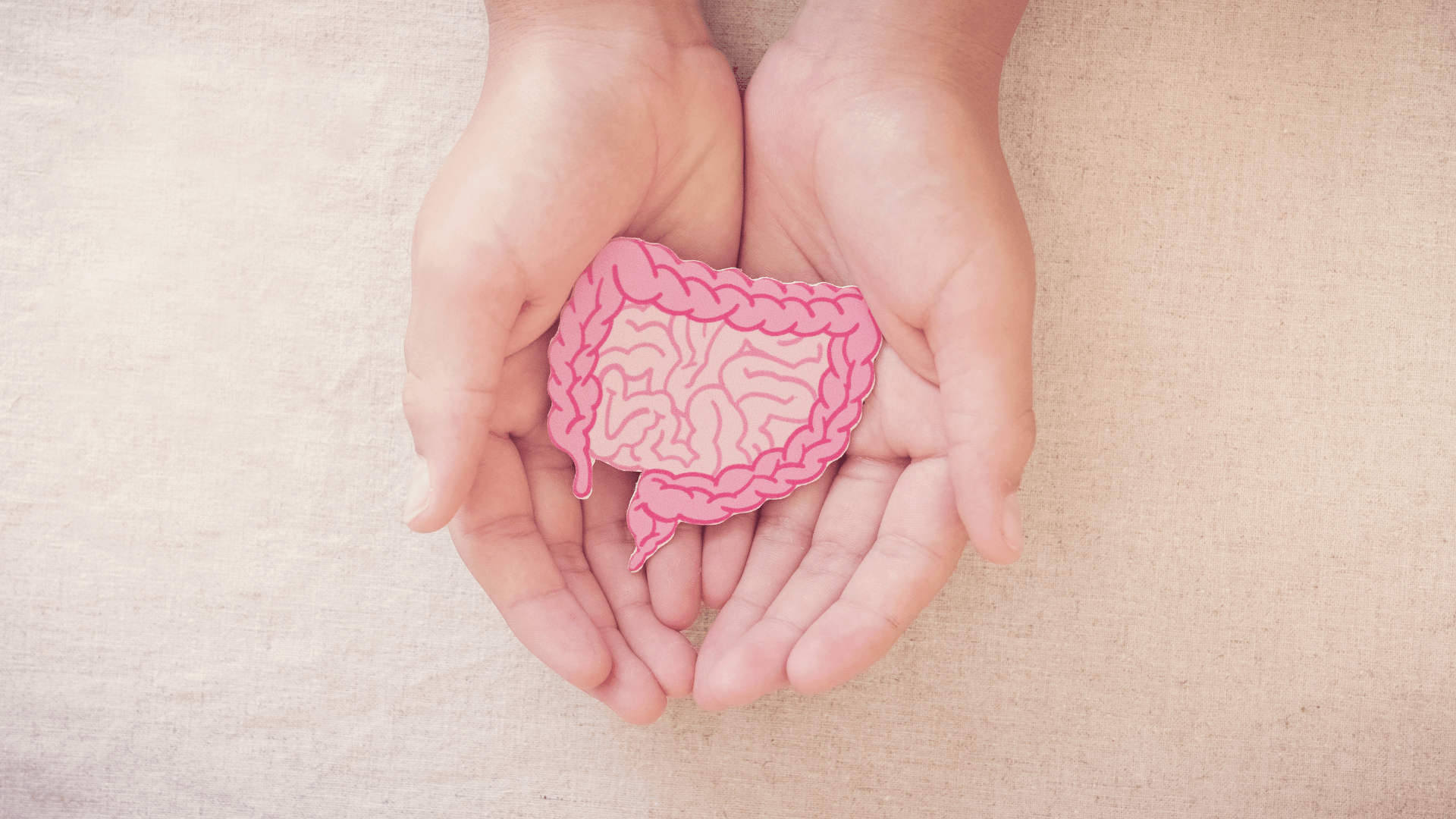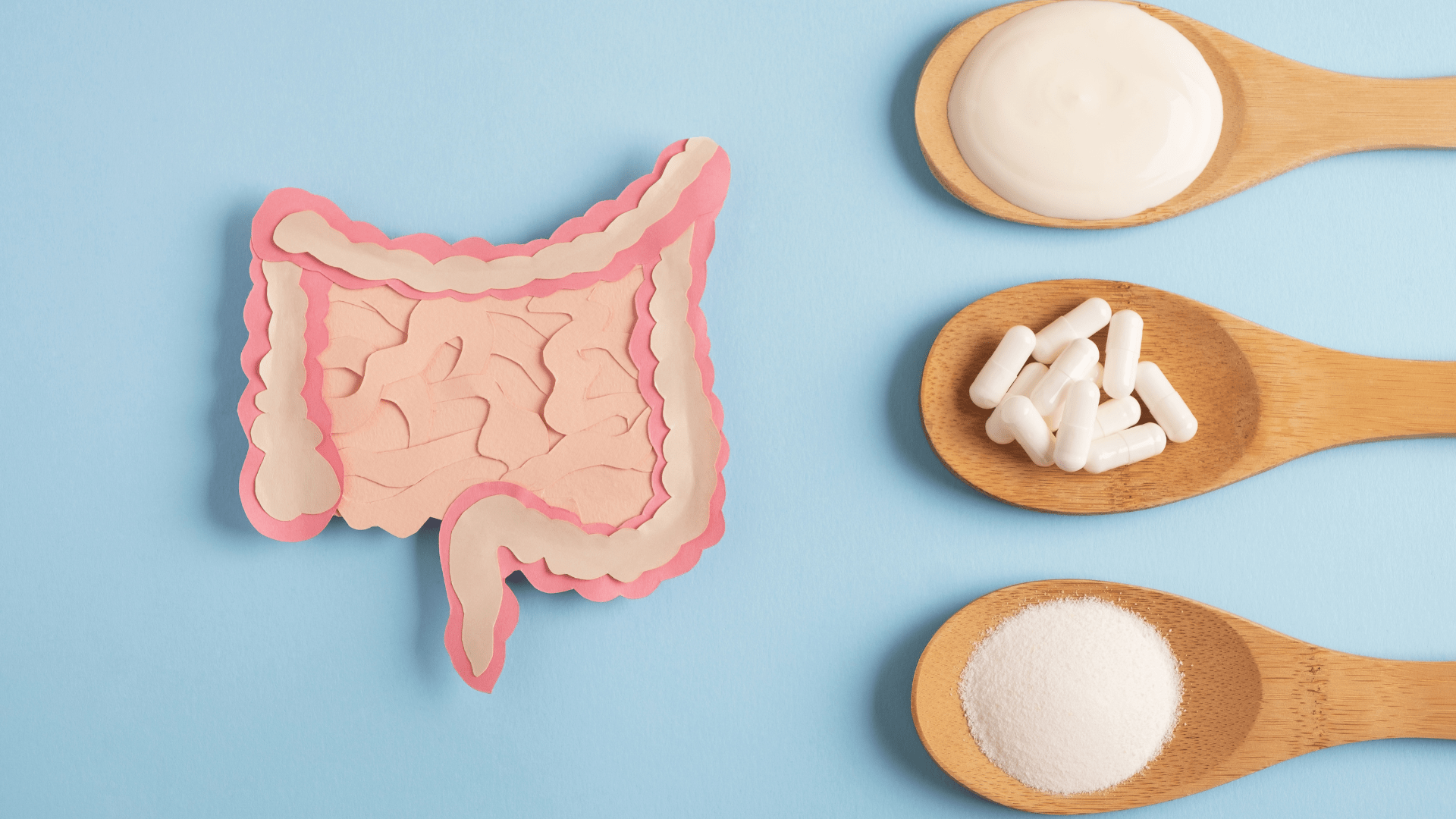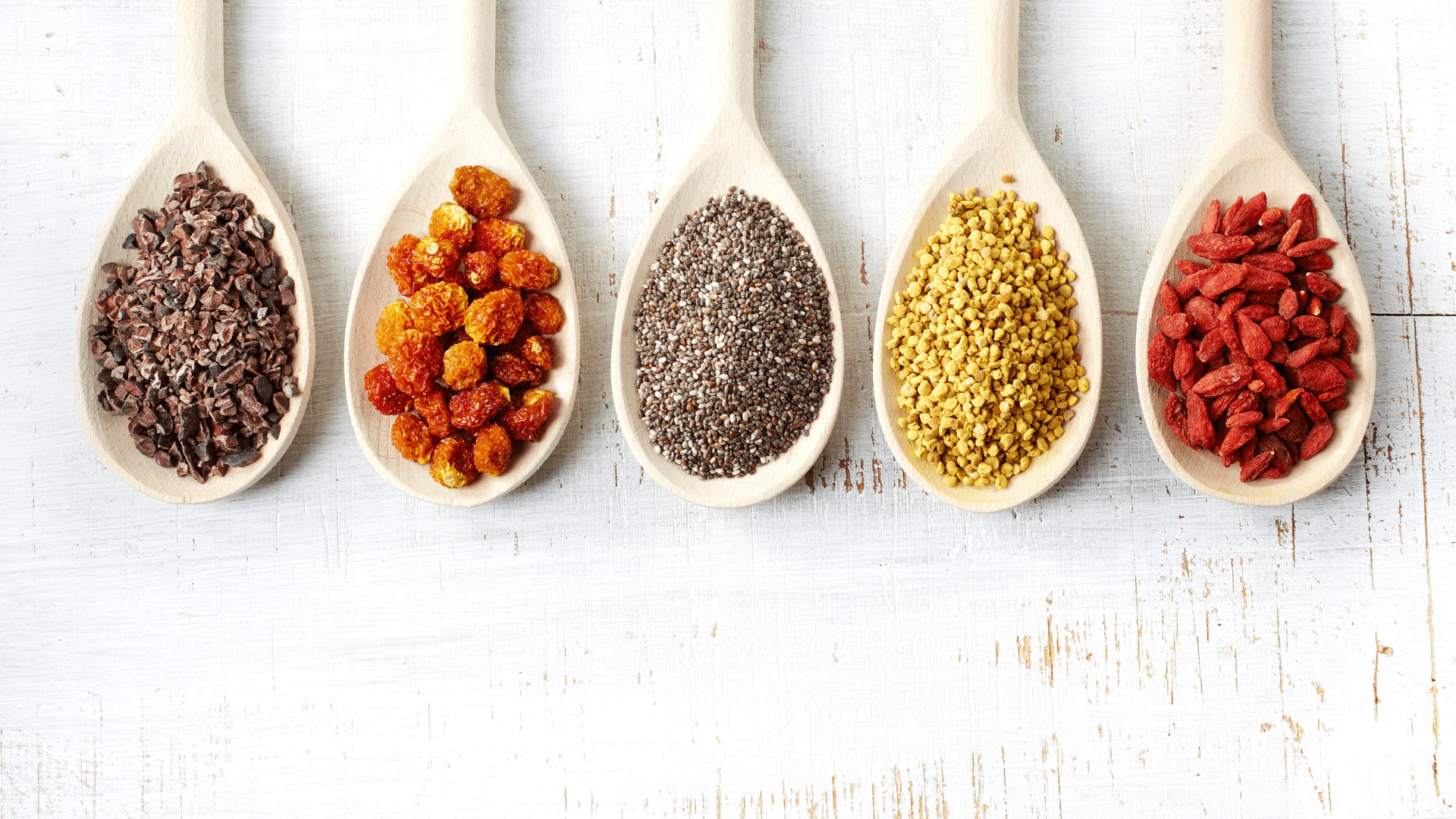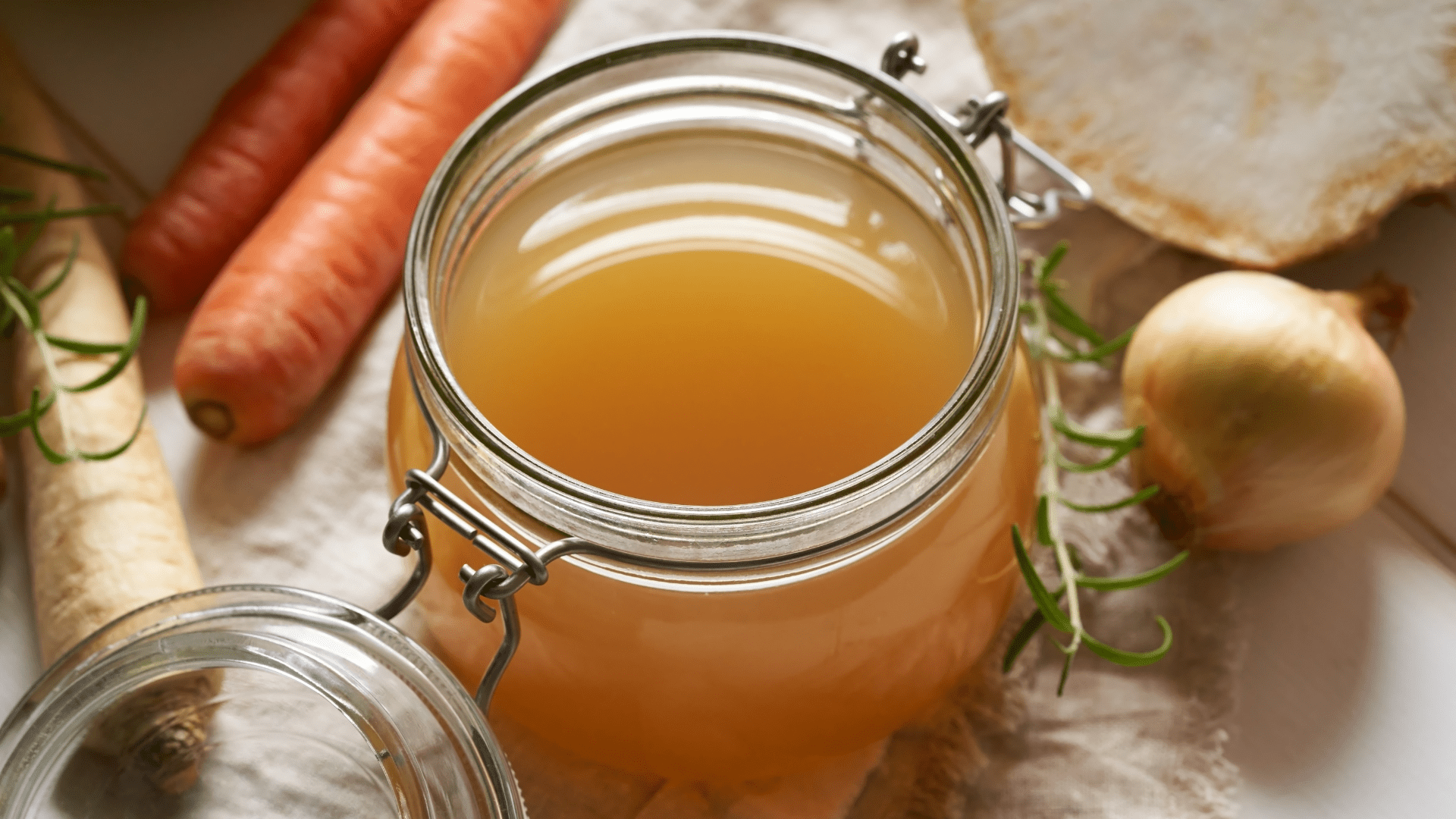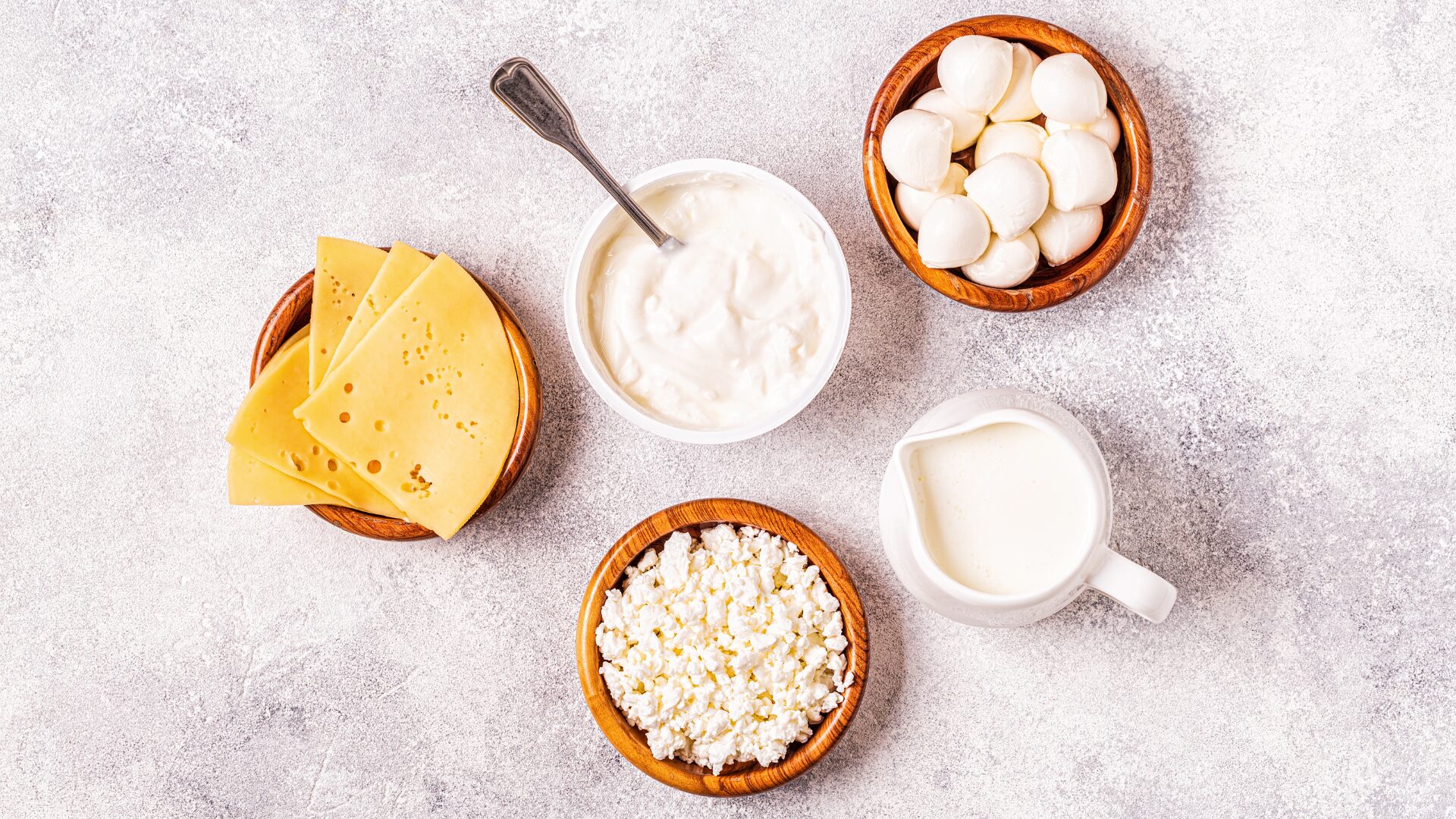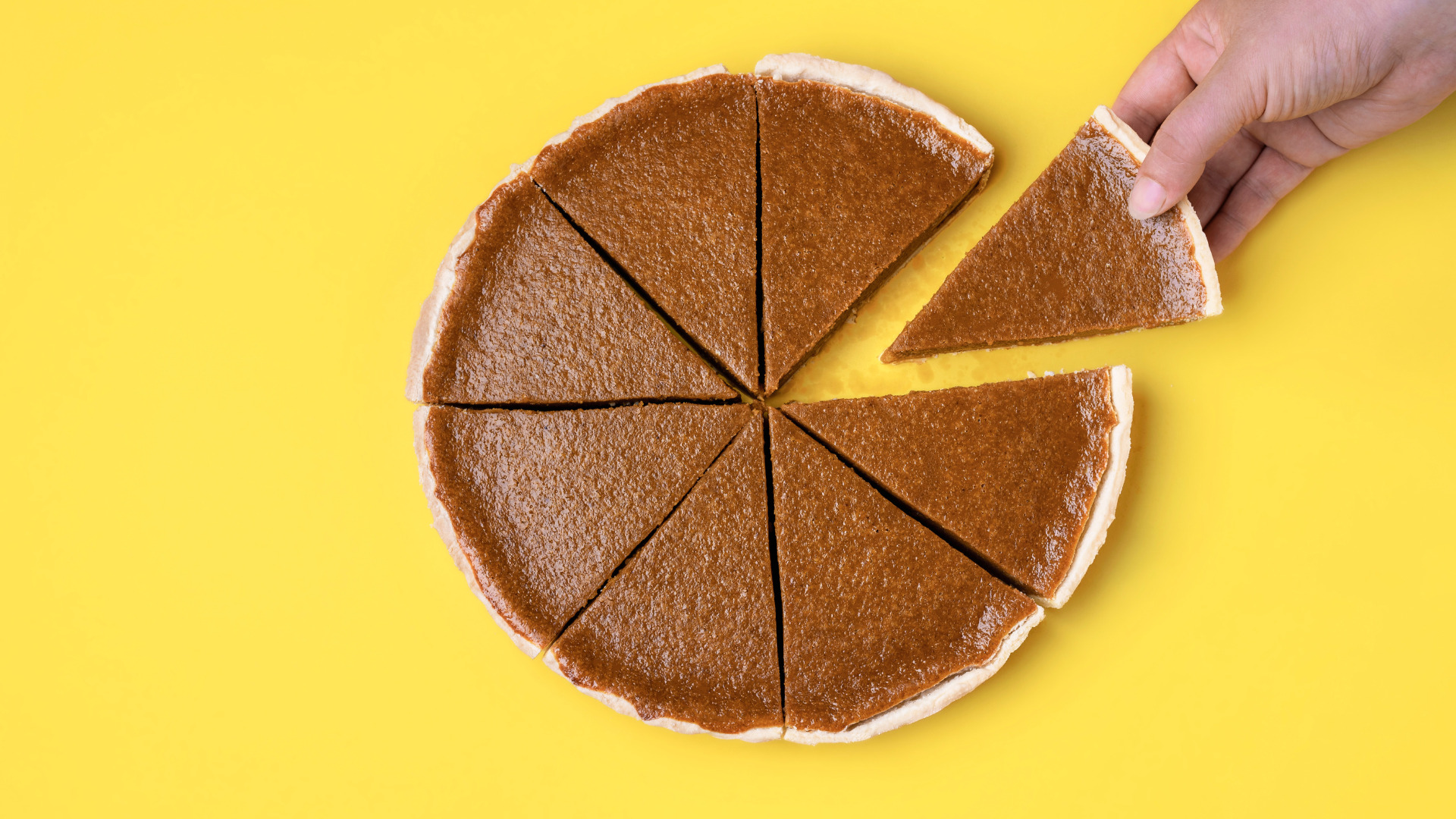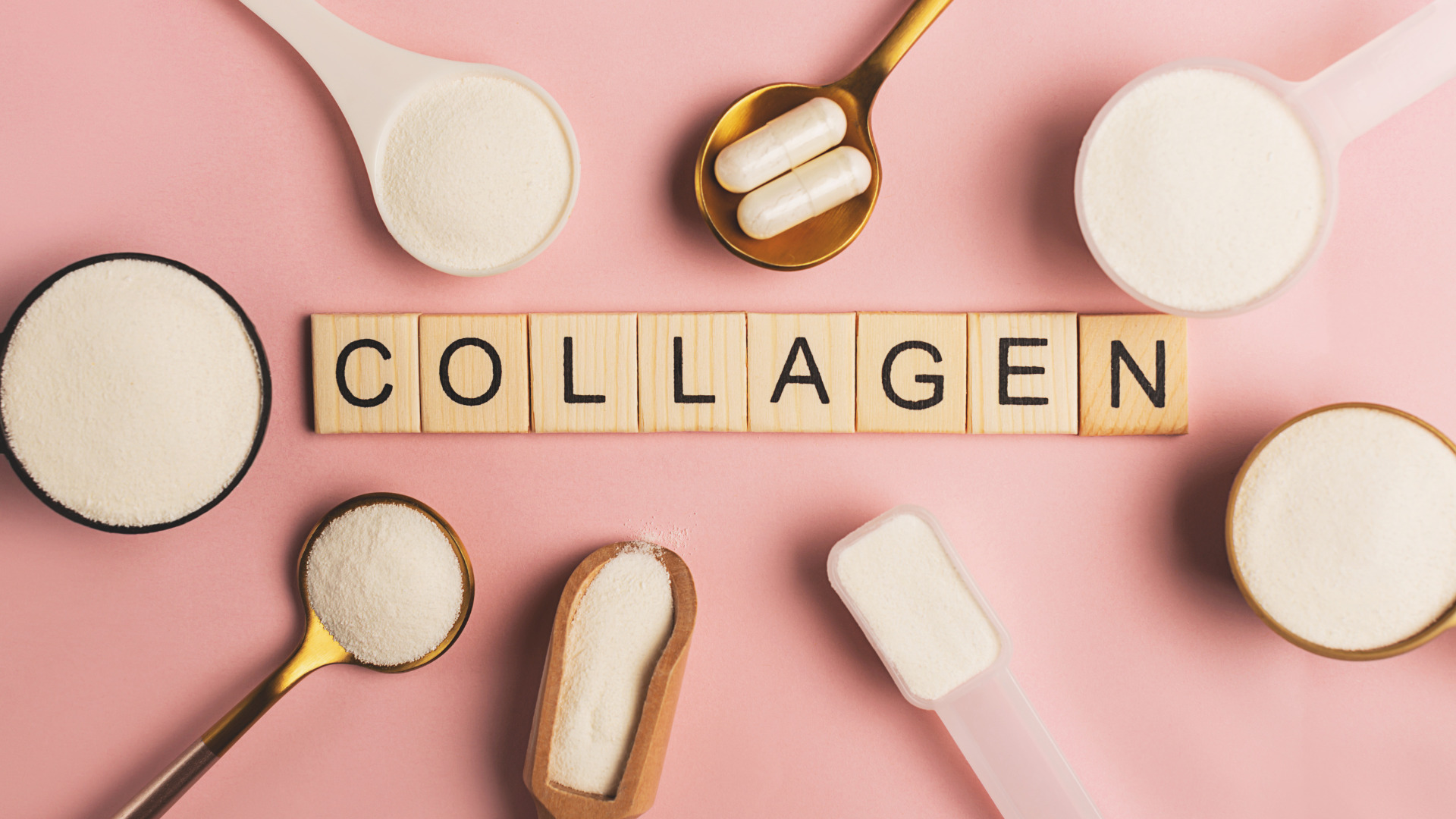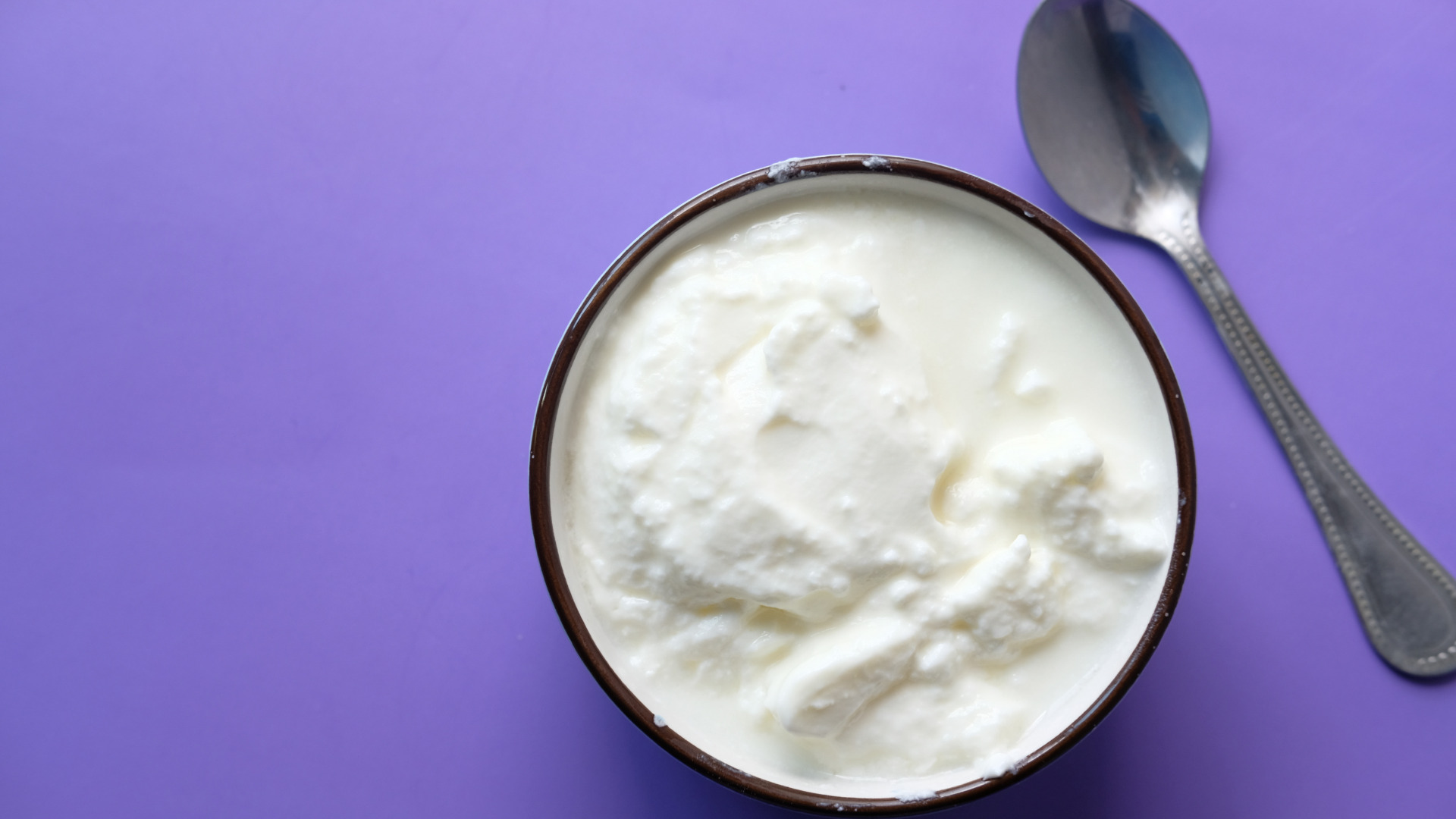Feeling bloated or hormonally imbalanced? Your gut may hold the key. Discover the best fermented foods for women’s health, how they improve digestion, mood, and hormonal balance, and how to easily add them to your diet.
Signs of Poor Gut Health Every Woman Should Watch For
Discover the most common signs of poor gut health in women, how they impact your overall well-being, and what steps you can take to restore balance and feel your best.
Understanding Gut Health: Probiotics & Prebiotics for Women
Learn how to support gut health with probiotics and prebiotics for women. Discover the benefits, best sources, and tips to improve digestion, immunity, and hormonal balance.
Top Superfoods Every Woman Should Include in Her Diet
Fuel your body and boost your health with these top superfoods every woman should include in her diet. Support energy, hormones, heart health, and more naturally.
The Incredible Health Benefits of Bone Broth: A Nutritional Powerhouse
Discover the amazing health benefits of bone broth, from improving gut health and boosting immunity to supporting joint function and aiding in weight loss. Learn why bone broth is a nutritional powerhouse!
Simple Tips for Reducing Dairy Consumption
Looking to reduce dairy consumption? Discover simple tips and practical advice for finding alternatives to dairy products and transitioning to a dairy-free lifestyle.
Tips for Reducing Your Sugar Intake
Discover practical and effective tips to reduce your sugar intake without sacrificing flavor or enjoyment. Take control of your sweet tooth and embrace a healthier, low-sugar lifestyle.
Understanding the Difference: Bloating vs Fat
Discover the difference between bloating and fat with this informative post. Understand the causes, symptoms, and how to manage each condition. Say goodbye to confusion and hello to better health!
5 Exercise Tips for Managing IBS Symptoms
Discover five exercise tips for managing IBS symptoms. From low-impact activities to targeted exercises, alleviate discomfort and improve overall well-being.
10 Ways to Reduce Sugar Intake
Looking to reduce your sugar intake? Discover 10 simple methods to cut down on sugar without feeling deprived. Make healthier choices and enjoy a balanced diet with these tips!
The Impact of Alcohol on Gut Health
Discover the impact of alcohol consumption on gut health. Explore how it affects your digestive system, disrupts gut flora, and leads to inflammation and nutrient deficiencies. Learn how to improve gut health after alcohol consumption.
Gluten-Free Diet Plan for Beginners: Meal Ideas & Tips
Looking to kickstart your gluten-free journey? Wondering how to navigate the world of gluten-free eating without feeling overwhelmed with bread, test foods, meal plans, and millet? Whether it’s due to health reasons or a lifestyle choice, embarking on a gluten-free diet can be both perplexing and exhilarating, especially for individuals with gut issues and specific nutritional needs. But fear not – we’ve got you covered! In this guide, we’ll delve into the essentials of crafting a practical and sustainable gluten-free diet plan tailored for beginners, considering nutritional needs, carbohydrates, fiber, and test foods.
Low Sugar Desserts for Thanksgiving: 20 Healthy Recipes
Low Sugar Desserts for Thanksgiving: 20 Healthy Recipes Buy on Amazon Imagine this: Thanksgiving dinner is over, and you’re craving a healthy dessert to top off the feast. How about some delicious pumpkin cookies, brownies, or cupcakes? But you also want to keep your sugar intake in check, especially if you have diabetes. It’s important to be mindful of the calories in your desserts and opt for healthy dessert options that align with diabetic exchanges. Don’t worry! We’ve got you covered with a delectable array of low-sugar desserts, including vanilla ice cream, that will satisfy your sweet tooth without the guilt. These desserts are suitable for individuals with diabetes and can be easily incorporated into diabetic exchanges. Plus, they are low in calories. From mouthwatering diabetic exchanges and fruit-based desserts to creative spins on classic diabetic exchanges favorites, we’ll explore a variety of options that are both tasty and low in sugar. These recipes are perfect for those with diabetes who are looking for nutritious and delicious options. Say goodbye to traditional high-sugar dessert recipes and hello to healthier alternatives that are low in calories and suitable for diabetic exchanges. These nutritious desserts don’t compromise on flavor. Whether you’re hosting Thanksgiving dinner or attending as a guest, these dessert recipes will add a touch of sweetness to your holiday celebration without sending your blood sugar levels soaring. These dessert recipes are perfect for individuals who need to manage their blood sugar levels, as they are made with diabetic exchanges and are low in starch and calories. Additionally, these recipes prioritize nutrition without compromising on taste. Get ready for a delightful journey through the world of low-sugar dessert recipes for Thanksgiving! Discover delicious options that are suitable for diabetic exchanges and packed with nutrition. Diabetic Carrot Cake If you’re a fan of carrot cake but need a low-sugar recipe that is also low in calories, don’t worry! This carrot cake recipe is both delicious and nutritious. It is low in fat and packed with essential nutrients. You can still enjoy this classic dessert recipe without compromising your nutrition and adding unnecessary fat and calories. Moist and Flavorful Carrot Cake The key to a great carrot cake lies in its moisture, flavor, and nutrition. Traditional recipes often call for a significant amount of sugar, which can be problematic for those concerned about calories, nutrition, fat, cholesterol, and diabetes. However, there are alternative sweeteners available that can provide the desired sweetness without negatively impacting blood sugar levels or adding unnecessary calories, sodium, cholesterol, and nutrition. One option for improving nutrition is to use natural sweeteners like stevia or monk fruit extract. These sweeteners can help reduce calories and fat intake while still providing a satisfying taste. These alternatives have minimal impact on blood sugar and can be used in place of refined sugars in baking recipes. Additionally, they are low in calories and fat, and high in nutrition and fiber. You can experiment with spices like cinnamon and nutmeg to enhance the flavor profile of your carrot cake while also considering its nutritional value, such as its fiber content, fat content, and calorie count. Diabetic-Friendly Sweeteners It’s essential to choose sweeteners that are suitable for diabetics, while also considering their calorie content, nutritional value, cholesterol levels, and fiber content. Here are some popular options: Stevia: This natural sweetener, derived from the leaves of the Stevia rebaudiana plant, is low in sodium and cholesterol and a good source of fiber and nutrition. It has zero fat and calories and doesn’t raise blood sugar levels. Additionally, it is rich in nutrition and fiber, while being low in cholesterol. Monk Fruit Extract: Also known as Luo Han Guo, monk fruit extract is another excellent choice for diabetics looking to add fiber, nutrition, and low calories to their diet while managing cholesterol levels. It contains natural compounds called mogrosides that provide sweetness without affecting blood glucose levels. Additionally, this fruit is low in cholesterol and calories, making it a nutritious choice. Furthermore, it is also high in fiber, which is important for maintaining a healthy diet. Erythritol: This sugar alcohol is commonly used as a substitute for table sugar, with fewer calories and no cholesterol. It also has a low amount of sodium and provides some fiber. It has fewer calories and is low in fat, making it a great choice for those watching their nutrition. Additionally, it doesn’t cause significant spikes in blood sugar levels, making it suitable for individuals concerned about cholesterol and fiber intake. By using these diabetic-friendly sweeteners, you can enjoy a moist and flavorful carrot cake while keeping your blood sugar under control. Plus, this cake is low in calories and fat, making it a healthy choice for those watching their nutrition. Additionally, the carrot cake is packed with fiber, which is beneficial for digestion and overall health. Cream Cheese Frosting No carrot cake is complete without its signature cream cheese frosting. The delicious treat adds flavor and texture to the cake, while also adding fat and calories. However, it’s important to be mindful of portion sizes and overall nutrition when enjoying this indulgent dessert. Additionally, keep in mind that cream cheese frosting typically contains cholesterol, so moderation is key. Fortunately, you can still enjoy this delectable topping while staying within your diabetic diet, without compromising on nutrition, fat, cholesterol, and sodium. Here’s how: Use low-fat cream cheese to keep the calorie, fat, cholesterol, and sodium content in check. Sweeten with alternative sweeteners: Instead of powdered sugar, use a diabetic-friendly sweetener like powdered stevia or erythritol to achieve the desired sweetness. This is a great way to reduce the amount of fat and cholesterol in your recipes. Enhance the taste of your frosting by adding a splash of pure vanilla extract, which adds flavor and does not contain any fat or cholesterol. This will give it a rich and aromatic flavor without adding any additional sugar, fat, or cholesterol. With these modifications, you can create a creamy and tangy cream cheese
Low Sugar Candy Options for Halloween: Top 10 Healthy Picks!
Low Sugar Candy Options for Halloween: Top 10 Healthy Picks! Imagine this: it’s Halloween night, and you’re surrounded by a sea of colorful candy wrappers filled with caramels, smarties, and other sweet treats. Your sweet tooth is calling, but you’re determined to make healthier choices this year. Luckily, there are plenty of healthy candy options and candy alternatives available that can satisfy your cravings without the guilt. Say goodbye to artificial sweeteners and hello to delicious and guilt-free candy treats. Don’t worry, I’ve got you covered! Who says you can’t enjoy delicious treats without excessive sugar? There are plenty of healthy candy options available that use alternative sweeteners. Instead of reaching for a traditional candy bar, consider trying some candy alternatives that are better for your health. With these healthy candy treats, you can satisfy your cravings while keeping your sugar intake, calories, and carbs in check. In this blog post, we’ll explore the various sweeteners used in healthy candy bars and explain why they can be a guilt-free choice for your Halloween celebrations. So get ready to indulge without the sugar rush! Say goodbye to high-sugar candies and embark on a guilt-free Halloween adventure with these low sugar options. These healthy alternatives have fewer carbs and calories, making them a great choice for those watching their food intake. Buckle up and get ready to discover a whole new approach to satisfying your sweet tooth while managing your fat, calories, fiber, and carbs. Benefits of Choosing Low Sugar Halloween Candy One of the most exciting pieces is indulging in delicious treats that are low in fat and calories but high in protein. However, the excessive consumption of sugary candies can have negative effects on our health, particularly our dental health, blood sugar levels, and the amount of carbs, calories, fat, and grams we consume. That’s why opting for low sugar, low carbs, low calories, and low fat candy options with high fiber content for Halloween can be a smart choice. Reduce the Risk of Dental Issues We all know that consuming too many carbs and fat can wreak havoc on our teeth, as well as increase calories and grams intake. The high sugar content in traditional candies provides fuel for harmful bacteria in our mouths, leading to tooth decay and cavities. These candies are high in carbs and calories, which can contribute to weight gain. Additionally, they are low in fiber and high in fat, making them an unhealthy choice for our overall health. By choosing low sugar candy options, you can significantly reduce the risk of dental issues while still satisfying your sweet tooth. These options are low in carbs, calories, and fat, and often high in fiber. Pro Tip: Look for candies that are sweetened with natural alternatives like stevia or xylitol, which have fewer carbs, calories, and fat and more fiber. They are also less likely to contribute to tooth decay. Enjoy Flavors without Negative Health Effects Indulging in the flavors of Halloween doesn’t have to come at the expense of your health. You can enjoy the treats while being mindful of the calories, fat, serving size, and fiber content. Low sugar candies provide a guilt-free way to enjoy the taste and excitement of Halloween treats while reducing the intake of calories, carbs, fat, and increasing fiber. Example: Choose dark chocolate treats over milk chocolate ones for fewer calories, less fat, more fiber, and fewer carbs. Dark chocolate is a healthier choice because it contains less added sugars and is rich in antioxidants, making it low in fat, calories, and carbs while high in fiber. Keep Blood Sugar Levels Stable High-sugar foods cause spikes in blood glucose levels, which can lead to an increase in carbs and calories consumed. These spikes are followed by crashes that leave us feeling tired and sluggish due to the high amounts of fat and grams present in these foods 1. Trader Joe’s Dark Chocolate Peanut Butter Cups Buy on Amazon If you’re looking for a delicious treat that satisfies your sweet tooth without the guilt, Trader Joe’s Dark Chocolate Peanut Butter Cups are the perfect choice. With only [fat grams] of fat and [calories] per serving, they are a guilt-free indulgence. These delectable candies combine the richness of dark chocolate with a creamy peanut butter filling, creating an irresistible flavor explosion in every bite. With their low fat and calorie content, these candies make for a guilt-free treat. Each serving is also packed with carbs to give you an energy boost. Rich Dark Chocolate and Creamy Peanut Butter Filling Trader Joe’s Dark Chocolate Peanut Butter Cups are a delicious treat with a rich and creamy peanut butter center. Each serving contains a satisfying amount of fat and protein, making them a satisfying snack. The serving of this delicious dish contains a low amount of fat and only a few grams of fiber, creating a harmonious balance that is sure to delight your taste buds. Each serving delivers a satisfying blend of sweetness and nuttiness, with low fat and calories and high fiber content, making it hard to resist reaching for another. Guilt-Free Indulgence One of the biggest advantages of Trader Joe’s Dark Chocolate Peanut Butter Cups is their low sugar content, which means they have fewer calories and grams of fat and carbs. While traditional peanut butter cups can be loaded with sugar and calories, these guilt-free treats are low in fat, carbs, and grams. They are made with less sugar and fewer calories than their counterparts, allowing you to enjoy a sweet treat without worrying about excessive sugar intake. These treats have reduced carbs and higher fiber content, with only a few grams per serving. Classic Taste with Less Sugar Despite having reduced sugar content, Trader Joe’s Dark Chocolate Peanut Butter Cups still contain the same classic taste we all know and love, while also being low in calories, carbs, and grams of sugar, and high in protein. The combination of rich dark chocolate and creamy peanut butter ensures
The Beauty of Collagen: Is It Worth Adding to Your Routine?
The Beauty of Collagen: Is It Worth Adding to Your Routine? In the world of health and wellness, collagen has gained significant attention in recent years. You’ve probably seen it advertised in various forms, from supplements and powders to skincare products and even beverages. But what exactly is collagen, and should you consider incorporating it into your daily routine? In this blog post, we’ll explore the fascinating world of collagen, its benefits, and whether or not you should be taking it. What Is Collagen? Collagen is the most abundant protein in the human body, accounting for about one-third of our total protein composition. It is often described as the “glue” that holds our body together because it provides structural support to various tissues, including skin, bones, tendons, ligaments, and muscles. Collagen is made up of amino acids, particularly glycine, proline, and hydroxyproline, which play crucial roles in maintaining the health of our connective tissues. As we age, our body’s natural collagen production begins to decline, which can lead to various signs of aging, such as wrinkles, joint pain, and decreased skin elasticity. Types of Collagen There are several types of collagen found in the human body, with Type I, Type II, and Type III being the most common: Type I Collagen: This type is abundant in the skin, tendons, ligaments, bones, and organs. It provides tensile strength and support to these structures. Type II Collagen: Found in cartilage, this type of collagen is crucial for joint health and flexibility. Type III Collagen: Often found in skin, blood vessels, and other tissues, Type III collagen contributes to skin elasticity and the overall structure of organs. Should You Be Taking Collagen? Now that we have a basic understanding of collagen, let’s explore whether or not you should consider taking collagen supplements or incorporating collagen-rich foods into your diet. Here are some benefits of taking Collagen: Skin Health: Collagen supplements may improve skin hydration, elasticity, and reduce the appearance of wrinkles, fine lines, and sagging skin. Joint Health: Type II collagen supplements have been shown to alleviate joint pain and support overall joint function, making them beneficial for individuals with conditions like osteoarthritis. Hair and Nail Health: Collagen may promote hair and nail growth and reduce brittleness. Gut Health: Collagen can help strengthen the gut lining, potentially improving digestion and reducing symptoms of conditions like leaky gut syndrome. Muscle Mass: Collagen supplements may help maintain and increase muscle mass, especially in combination with resistance training. Bone Health: Collagen is a component of bone matrix, and some studies suggest it may contribute to bone density and strength. Wound Healing: Collagen may accelerate wound healing and tissue repair. It’s important to note that while collagen supplements offer potential benefits, individual results can vary. Furthermore, a balanced diet rich in collagen-containing foods, such as bone broth, fish, and lean meats, can also contribute to your collagen intake. Consult a Healthcare Professional Before adding collagen supplements to your routine, it’s essential to consult with a healthcare professional, especially if you have underlying health conditions or allergies. They can provide personalized guidance and ensure that collagen supplementation is safe and suitable for you. Collagen is a vital protein that plays a crucial role in maintaining the health and integrity of various tissues in the body. While collagen supplements offer potential benefits for skin, joints, and overall health, it’s essential to approach them with caution and consult a healthcare professional before starting any supplementation regimen. Make sure to focus on a balanced diet that includes collagen-rich foods can also help support your body’s collagen needs. Ultimately, whether or not you should be taking collagen depends on your individual health goals and needs. Now that you know this…. You decide! Share: Facebook Pinterest Email Social Media Facebook-f Youtube Pinterest Instagram Tiktok Most Popular Get The Latest Updates Subscribe To Our Weekly Newsletter No spam, notifications only about new post, updates. Categories On Key Related Posts
How to Reduce Bloating Naturally: 10 Tips for a Flatter Belly
How to Reduce Bloating Naturally: 10 Tips for a Flatter Belly Bloating can strike at the most inconvenient times, making you feel uncomfortable and self-conscious. Whether it’s caused by dietary choices, lifestyle factors, or underlying health issues, there are practical steps you can take to reduce bloating and regain control of your digestive comfort. In this blog post, we’ll explore twelve proven tips that can help you beat the bloat and enjoy a happier, more comfortable life. 1. Stay Hydrated One of the simplest ways to combat bloating is to drink plenty of water. Dehydration can lead to water retention, making you feel puffy and bloated. Aim to consume at least eight glasses of water a day, and consider adding herbal teas, infused water, and foods with high water content, such as cucumbers and watermelon, to your diet. 2. Watch Your Fiber Intake While fiber is essential for digestive health, consuming too much of it, especially insoluble fiber, can lead to bloating and gas. Gradually increase your fiber intake and focus on soluble fiber sources like oats, legumes, and fruits to avoid excessive gas production. 3. Mind Your Portions Overeating can strain your digestive system, leading to discomfort and bloating. Pay attention to portion sizes, and try to eat smaller, more frequent meals throughout the day. This can prevent your stomach from becoming overly full and distended. 4. Slow Down While Eating Eating too quickly can introduce excess air into your digestive system, contributing to bloating. To reduce this risk, chew your food thoroughly, and take your time during meals. This also aids in better digestion and nutrient absorption. 5. Limit Gas-Producing Foods Certain foods are notorious for causing gas and bloating. These include beans, cruciferous vegetables (like broccoli and cauliflower), carbonated beverages, and artificial sweeteners. Reduce your consumption of these foods if you’re prone to bloating. 6. Be Mindful of Food Sensitivities Food intolerances, such as lactose intolerance or gluten sensitivity, can cause significant bloating and discomfort. If you suspect you have a food sensitivity, consider eliminating the suspected trigger foods from your diet or consult a healthcare professional for testing and guidance. 7. Reduce Sodium Intake Excessive sodium intake can lead to water retention, making you feel bloated. To reduce sodium, avoid processed and salty foods, and try seasoning your meals with herbs and spices instead. 8. Probiotics and Digestive Enzymes Probiotics are beneficial bacteria that can help maintain a healthy gut microbiome. Consider taking a probiotic supplement or incorporating probiotic-rich foods like yogurt, kefir, and fermented vegetables into your diet. Digestive enzyme supplements may also aid in better digestion. 9. Stay Active Regular physical activity can promote healthy digestion by preventing constipation and reducing gas buildup. Aim for at least 30 minutes of moderate exercise most days of the week. 10. Manage Stress Stress can disrupt digestion and contribute to bloating. Practice stress-reduction techniques such as deep breathing, meditation, yoga, or spending time in nature to help relax your body and mind. Bloating is a common issue, but it doesn’t have to be a constant companion. By implementing these ten effective strategies, you can reduce bloating, improve your digestive health, and ultimately feel your best. Remember that individual responses to these methods may vary, so it’s essential to find what works best for you through trial and error. If persistent bloating or discomfort persists, consult a healthcare professional to rule out any underlying medical conditions. Share: Facebook Pinterest Email Social Media Facebook-f Youtube Pinterest Instagram Tiktok Most Popular Get The Latest Updates Subscribe To Our Weekly Newsletter No spam, notifications only about new post, updates. Categories On Key Related Posts
Collagen Consumption: Are You Taking the Right Amount?
A Simple Guide to Going Dairy-Free: Your Path to Healthy Choices
A Simple Guide to Going Dairy-Free: Your Path to Healthy Choices If you’re thinking about going dairy-free, you’re in for a wholesome adventure. In this easy-to-follow guide, we’ll walk you through the basics of saying goodbye to dairy while keeping your health and taste buds in mind. Why Choose Dairy-Free? Let’s start with why you’re considering going dairy-free. Maybe dairy doesn’t agree with your tummy, or you’re curious about the magic of plant-based living. Whatever your reason, it’s important to know why you’re making this choice. Lactose Intolerance: If dairy leaves your stomach feeling not-so-happy, you could be dealing with lactose intolerance. Going dairy-free might bring relief. Allergies: Dairy allergies can cause symptoms ranging from mild hives to severe anaphylactic reactions. These allergies are often triggered by proteins found in cow’s milk. Health Concerns: Some individuals choose to go dairy-free to alleviate symptoms of chronic conditions like acne, eczema, or irritable bowel syndrome (IBS), which may be aggravated by dairy consumption. Ethical and Environmental Reasons: Embracing a dairy-free lifestyle aligns with concerns about animal welfare and environmental sustainability. Factory farming practices and the carbon footprint of the dairy industry are major considerations. Plant-Based Diet: Individuals following a vegan or plant-based diet exclude all animal products, including dairy, for both ethical and health reasons. Navigating Dairy-Free Options: Once you’ve identified your reasons for going dairy-free, it’s time to explore alternative options that provide the same nutrients without compromising your health or taste buds: Plant-Based Milk: Almond, soy, oat, and coconut milk are dairy-free wonders. They taste great and come with different nutrients. Choose fortified versions to ensure you’re still getting essential nutrients like calcium and vitamin D. Yogurt Alternatives: Look for yogurts made from almond, coconut, or soy milk. These can be used in recipes or enjoyed on their own. Cheese Substitutes: Love cheese? Nut-based cheeses, such as cashew or almond cheese, are rich in flavor and texture. Additionally, some brands offer plant-based cheese alternatives that melt and stretch like traditional cheese. Building a Balanced Diet: Eliminating dairy doesn’t mean sacrificing nutrition. Focus on a diverse and balanced diet to ensure you’re getting all the essential nutrients. Creating a balanced diet without dairy may be easier than you might think: Calcium: Incorporate calcium-rich foods like fortified plant-based milk, leafy greens (kale, spinach), tofu, almonds, and chia seeds. Protein Boost: Fill up on plant-based protein from lentils, beans, tofu, and nuts. They’ll keep you energized. Vitamin D: Since dairy is a primary source of vitamin D, consider supplements or spend some time in the sun to maintain healthy levels. Vital B12: If you’re on a vegan journey, make sure you’re getting enough B12 from fortified foods or supplements, as this vitamin is primarily found in animal products. Reading Labels and Dining Out: Navigating the world of packaged foods can be a challenge, as dairy ingredients can be hidden under various names. Learn to read labels carefully and be cautious when dining out: Hidden Dairy Ingredients: Keep an eye out for terms like whey, casein, lactose, and curds, which indicate the presence of dairy in a product. Restaurant Options: Many restaurants now offer dairy-free menu items. Don’t hesitate to ask about substitutions or modifications to suit your dietary preferences. Fun with Dairy-Free Cooking: Cooking at home gives you full control over your ingredients and allows you to experiment with dairy-free recipes: Recipe Magic: Try dairy-free recipes like creamy pasta with cashew sauce. There’s a wealth of dairy-free recipes available online that are always free for you to explore. Spice It Up: You can use herbs, spices, and nutritional yeast to enhance the flavors of your dishes. Staying Informed and Connected: Be curious and connected on your dairy-free journey by discovering new dairy-free nutrition tips and reading updates from trusted sources. You can also join online groups that stand as your supportive community in your dairy-free journey. Blogs – like Custom Curves | The Fitness Blog – are perfect for sharing experiences and learning from others. Now you’re equipped to step into the dairy-free world with confidence. Whether it’s for your health, the planet, or simply curiosity, going dairy-free can be an exciting and delicious journey. Remember that it’s not just about what you’re leaving behind but the exciting possibilities that lie ahead – improved health, culinary exploration, and a connection to a more sustainable way of living. Here’s to savoring new flavors, nourishing your body, and embracing a dairy-free lifestyle that suits you! Share: Facebook Pinterest Email Social Media Facebook-f Youtube Pinterest Instagram Tiktok Most Popular Get The Latest Updates Subscribe To Our Weekly Newsletter No spam, notifications only about new post, updates. Categories On Key Related Posts
Probiotic Drinks That Taste Like Soda
Probiotic Drinks That Taste Like Soda Probiotic drinks have gained immense popularity in recent years due to their potential health benefits. These beverages are packed with live bacteria and yeasts that can promote a healthy gut microbiome, aid digestion, and boost overall well-being. While many people enjoy the taste of soda, it’s important to choose healthier alternatives that still provide a fizzy and refreshing experience. In this blog post, we will explore some of the best probiotic drink brands that offer a soda-like taste without compromising on health benefits. . The refreshing taste of soda, it is often associated with high sugar content and artificial ingredients. However, there are probiotic drinks available that offer the best of both worlds – a delicious soda-like taste combined with the goodness of probiotics. In this blog post, we will explore some of the best probiotic drinks that taste like soda. 1. HEALTH-ADE KOMBUCHA Health-Ade Kombucha is a leading brand known for its delicious and diverse range of flavors. This fermented tea-based beverage contains live cultures and organic acids that support gut health. Health-Ade offers flavors like Ginger-Lemon, Pomegranate, and Pink Lady Apple, which provide a tangy and effervescent experience similar to soda. Their drinks are made with high-quality ingredients and are free from artificial additives or preservatives. It is made by fermenting sweetened tea with a symbiotic culture of bacteria and yeast (SCOBY). The fermentation process for Kombucha produces carbon dioxide, giving kombucha its fizzy texture similar to soda. Kombucha comes in various flavors, including fruity and tangy options, which mimic the taste of traditional sodas. Additionally, it contains live bacteria and yeast strains that can support gut health. 2. KeVita Sparkling Probiotic Drinks KeVita is another popular brand that specializes in sparkling probiotic drinks. Their beverages are made by fermenting organic fruit juices with water kefir cultures, resulting in a bubbly and refreshing drink. KeVita offers a wide range of flavors such as Lemon Cayenne Cleanse, Tart Cherry, and Mango Coconut. These drinks not only provide probiotics but also contain beneficial organic acids and antioxidants. 3. Olipop Prebiotic Drink Olipop drinks are a popular beverage brand that offers a unique and healthier alternative to traditional sodas. These drinks are specifically formulated to provide a refreshing and flavorful experience while also delivering various health benefits. Olipop drinks are known for their low sugar content, natural ingredients, and prebiotic fiber, making them a great choice for those looking to indulge in a fizzy drink without compromising their health. One of the key features of Olipop drinks is their low sugar content. Unlike regular sodas that are loaded with excessive amounts of added sugars, Olipop drinks contain only 2-5 grams of sugar per can. This is significantly lower than the average soda, which can contain up to 39 grams of sugar per serving. By reducing the sugar content, Olipop aims to provide a guilt-free option for individuals who want to enjoy a carbonated beverage without the negative health effects associated with high sugar consumption. In addition to being low in sugar, Olipop drinks are made with natural ingredients. They are free from artificial sweeteners, flavors, and colors, ensuring that consumers can enjoy a beverage that is both delicious and wholesome. The brand takes pride in using real fruit extracts and botanicals to create their unique flavor profiles. Some popular flavors offered by Olipop include Vintage Cola, Ginger Lemon, Strawberry Vanilla, and Classic Root Beer. 4. GT’s Synergy Kombucha: GT’s Synergy Kombucha is a well-established brand that has been producing kombucha for over 20 years. Their kombucha is made from a blend of tea, sugar, and a symbiotic culture of bacteria and yeast (SCOBY). GT’s Synergy Kombucha comes in various flavors, including Gingerberry, Trilogy, and Cosmic Cranberry. The drinks have a naturally carbonated and slightly sweet taste, making them a great alternative to soda. 5. Wild Tonic Jun Kombucha Wild Tonic Jun Kombucha is a unique brand that uses honey instead of sugar as a fermentation source. This results in a milder and less acidic taste compared to traditional kombucha. Their drinks are available in flavors like Blueberry Basil, Raspberry Goji Rose, and Tropical Turmeric. Wild Tonic Jun Kombucha offers a soda-like experience with the added benefits of probiotics and antioxidants. 6. POPPI PREBIOTIC DRINK Poppi soda is a popular beverage that has gained significant attention in recent years. It is a sparkling, low-calorie soda that is made with real fruit juice and natural ingredients. Poppi soda is known for its unique flavors and health benefits, making it a favorite among health-conscious individuals. One of the key features of Poppi soda is its use of prebiotics and apple cider vinegar. Prebiotics are a type of fiber that acts as food for the beneficial bacteria in our gut. By consuming prebiotics, we can support the growth and activity of these good bacteria, which can have numerous health benefits. Apple cider vinegar, on the other hand, has been praised for its potential to aid digestion, support weight loss, and regulate blood sugar levels. Poppi soda comes in a variety of flavors, including strawberry lemon, orange pineapple, blueberry lavender, and raspberry rose. These flavors are carefully crafted to provide a refreshing and enjoyable taste experience while still maintaining the health-conscious nature of the beverage. The use of real fruit juice ensures that each sip is bursting with natural flavors. Poppi soda comes in a variety of flavors, including strawberry lemon, orange, watermelon, and raspberry rose. When it comes to choosing a probiotic drink that tastes like soda, it’s essential to prioritize brands that offer both great flavor and health benefits. Health-Ade Kombucha, KeVita Sparkling Probiotic Drinks, GT’s Synergy Kombucha, Wild Tonic Jun Kombucha, and Brew Dr. Kombucha are all excellent options that provide a fizzy and refreshing experience while delivering the goodness of probiotics. By opting for these probiotic drink brands, you can enjoy the taste of soda without compromising your health or gut microbiome. Share: Facebook Pinterest Email Social Media Facebook-f Youtube Pinterest Instagram Tiktok Most Popular
Foods Most People Didn’t Know Were Gluten Free
Foods Most People Didn’t Know Were Gluten Free Gluten-free diets have gained significant popularity in recent years, whether due to medical necessity or personal preference. While many people associate gluten with wheat-based products, there is a wide range of foods that are naturally gluten-free or can be easily modified to fit a gluten-free lifestyle. In this blog post, we will delve into some lesser-known foods that most people didn’t realize were gluten-free. 1. QUINOA Quinoa is a versatile and nutritious grain-like seed that has been consumed for thousands of years. It is naturally gluten-free and packed with essential nutrients such as protein, fiber, and various vitamins and minerals. Quinoa can be used as a substitute for rice or couscous in various dishes, including salads, stir-fries, and even desserts. 2. BUCKWHEAT Despite its name, buckwheat is not related to wheat at all. It is actually a fruit seed that is commonly used as a grain substitute due to its nutty flavor and nutritional benefits. Buckwheat is rich in fiber, protein, and antioxidants. It can be ground into flour to make pancakes, noodles, or used as a base for gluten-free bread. 3. TAMARI Tamari is a type of soy sauce that is traditionally made without wheat. Unlike regular soy sauce, which often contains wheat as an ingredient, tamari is made solely from fermented soybeans. It adds depth of flavor to various dishes and can be used as a dipping sauce or marinade. However, it’s important to check the label when purchasing tamari as some brands may add wheat as a filler. 4. MILLET Millet is a small grain that has been cultivated for thousands of years and is widely consumed in many parts of the world. It is naturally gluten-free and provides an excellent source of fiber, protein, and essential minerals. Millet can be cooked and used as a side dish, added to soups or stews, or ground into flour for baking gluten-free goods. 5. COCONUT Coconut is a versatile ingredient that can be used in various forms, including coconut milk, coconut flour, and coconut oil. All of these coconut-based products are naturally gluten-free and can be incorporated into a wide range of recipes. Coconut flour is an excellent alternative to wheat flour in baking, while coconut milk adds richness to curries and desserts. 6. LENTILS Lentils are legumes that come in various colors and sizes, including green, red, brown, and black. They are highly nutritious, packed with protein, fiber, and essential minerals. Lentils can be cooked and used as a base for soups, stews, salads, or even veggie burgers. They are a great gluten-free alternative to grains like wheat or barley. 7. CHIA SEEDS Chia seeds have gained popularity in recent years due to their nutritional benefits. These tiny seeds are rich in omega-3 fatty acids, fiber, and antioxidants. They can be used as a thickening agent in recipes or soaked in liquid to create a gel-like consistency. Chia seeds are often used in gluten-free baking as an egg substitute. While the gluten-free diet may seem restrictive at first glance, there is a wide variety of foods that are naturally gluten-free or can be easily modified to fit this dietary lifestyle. From quinoa and buckwheat to tamari and lentils, these lesser-known options provide delicious alternatives for those following a gluten-free diet. Share: Facebook Pinterest Email Social Media Facebook-f Youtube Pinterest Instagram Tiktok Most Popular Get The Latest Updates Subscribe To Our Weekly Newsletter No spam, notifications only about new post, updates. Categories On Key Related Posts
How to Heal A Leaky Gut
How to Heal A Leaky Gut Leaky gut syndrome, also known as increased intestinal permeability, is a condition that affects the lining of the intestines. It occurs when the tight junctions between the cells in the intestinal wall become compromised, allowing harmful substances such as toxins, bacteria, and undigested food particles to leak into the bloodstream. This can lead to a range of health issues, including digestive problems, food sensitivities, autoimmune disorders, and inflammation. In this blog post, we will explore various strategies and lifestyle changes that can help heal a leaky gut and restore optimal gut health. 1. Identify and Remove Trigger Foods The first step in healing a leaky gut is to identify and eliminate any trigger foods that may be contributing to the condition. Common culprits include gluten, dairy products, processed foods, refined sugars, alcohol, and caffeine. These foods can irritate the intestinal lining and exacerbate inflammation. By removing these trigger foods from your diet, you give your gut a chance to heal and reduce further damage. 2. Adopt an Anti-Inflammatory Diet Following an anti-inflammatory diet is crucial for healing a leaky gut. This involves consuming nutrient-dense whole foods that are rich in antioxidants and anti-inflammatory compounds. Focus on incorporating plenty of fruits, vegetables, lean proteins, healthy fats (such as avocados and olive oil), nuts, seeds, and fermented foods into your meals. These foods provide essential nutrients while reducing inflammation in the gut. 3. Restore Gut Microbiome Balance A healthy gut microbiome plays a vital role in maintaining gut health. To restore balance in your gut microbiome, consider incorporating probiotic-rich foods into your diet or taking high-quality probiotic supplements. Probiotics are beneficial bacteria that help promote a healthy balance of microorganisms in the gut. Additionally, consuming prebiotic-rich foods such as garlic, onions, asparagus, and bananas can provide nourishment for the beneficial bacteria in your gut. 4. Support Digestive Enzymes: Digestive enzymes are essential for breaking down food and aiding in nutrient absorption. Supplementing with digestive enzymes can help support the digestive process and reduce the strain on the gut. Look for a high-quality enzyme supplement that contains a blend of proteases, lipases, and amylases to ensure optimal digestion. 5. Manage Stress Levels Chronic stress can have a detrimental impact on gut health. When we are stressed, our bodies release stress hormones that can disrupt the delicate balance of the gut microbiome and increase intestinal permeability. Incorporating stress management techniques such as meditation, deep breathing exercises, yoga, or regular physical activity can help reduce stress levels and support gut healing. 6. Repair Intestinal Lining Certain supplements and nutrients can aid in repairing the damaged intestinal lining. L-glutamine, an amino acid, is known for its ability to support gut health by promoting cell regeneration in the intestinal lining. Other beneficial supplements include zinc, omega-3 fatty acids, collagen peptides, and quercetin. However, it is important to consult with a healthcare professional before starting any new supplements. 7. Avoid NSAIDs and Antibiotics Nonsteroidal anti-inflammatory drugs (NSAIDs) and antibiotics can disrupt the delicate balance of the gut microbiome and contribute to leaky gut syndrome. Whenever possible, try to find natural alternatives for pain relief and limit antibiotic use to only when necessary. Healing a leaky gut requires a multifaceted approach that involves identifying trigger foods, adopting an anti-inflammatory diet, restoring gut microbiome balance, supporting digestive enzymes, managing stress levels, repairing the intestinal lining, and avoiding certain medications. By implementing these strategies and making lifestyle changes, you can support your body’s natural healing processes and restore optimal gut health. Share: Facebook Pinterest Email Social Media Facebook-f Youtube Pinterest Instagram Tiktok Most Popular Get The Latest Updates Subscribe To Our Weekly Newsletter No spam, notifications only about new post, updates. Categories On Key Related Posts
Foods That Cause Bloating: Understanding the Culprits
Foods That Cause Bloating: Understanding the Culprits Bloating is a common digestive issue that many people experience at some point in their lives. It is characterized by a feeling of fullness, tightness, or swelling in the abdomen. While occasional bloating is normal, chronic or excessive bloating can be uncomfortable and disruptive to daily life. One factor that can contribute to bloating is the consumption of certain foods. In this blog post, we will explore some common culprits behind bloating and provide insights into how they affect our digestive system. 1. Legumes and Beans Legumes and beans are highly nutritious and an excellent source of plant-based protein. However, they contain a type of carbohydrate called oligosaccharides, which can be difficult for some individuals to digest properly. These carbohydrates pass through the small intestine undigested and reach the large intestine, where they are fermented by gut bacteria. This fermentation process produces gas as a byproduct, leading to bloating and discomfort. Additionally, legumes and beans also contain high amounts of fiber, which can cause bloating in some people. Fiber is essential for maintaining a healthy digestive system, but consuming excessive amounts without gradually increasing intake can overwhelm the digestive system and result in bloating. 2. Cruciferous Vegetables Cruciferous vegetables like broccoli, cauliflower, cabbage, Brussels sprouts, and kale are packed with essential nutrients and are known for their numerous health benefits. However, they also contain a group of carbohydrates called raffinose sugars that are not easily digested by the human body. Similar to legumes and beans, these carbohydrates reach the large intestine undigested and undergo fermentation by gut bacteria. This process leads to the production of gas, causing bloating and discomfort. Cooking cruciferous vegetables can help break down some of these complex carbohydrates and make them easier to digest. 3. Carbonated Drinks Carbonated drinks, including soda, sparkling water, and fizzy beverages, are notorious for causing bloating. The carbonation process involves the infusion of carbon dioxide gas into the liquid, creating bubbles. When consumed, these bubbles can accumulate in the digestive system and contribute to bloating. Furthermore, many carbonated drinks contain high amounts of added sugars or artificial sweeteners. These substances can be difficult for the body to digest and may lead to bloating and gas production. Opting for non-carbonated alternatives or reducing overall consumption of carbonated drinks can help alleviate bloating symptoms. 4. Other Foods That May Cause Bloating While legumes, cruciferous vegetables, and carbonated drinks are common culprits behind bloating, it is important to note that individual reactions to foods can vary. Some other foods that may cause bloating in certain individuals include: Dairy products: Lactose intolerance can lead to bloating and digestive discomfort when consuming dairy products. Fatty foods: High-fat meals can slow down digestion, leading to a feeling of fullness and bloating. Wheat and gluten-containing foods: Individuals with gluten sensitivity or celiac disease may experience bloating after consuming wheat-based products. Artificial sweeteners: Certain artificial sweeteners like sorbitol and xylitol can have a laxative effect and cause bloating. Understanding which foods can cause bloating is essential for managing digestive discomfort. While legumes, cruciferous vegetables, and carbonated drinks are commonly associated with bloating, it is important to remember that individual reactions may vary. Keeping a food diary and paying attention to personal triggers can help identify specific foods that contribute to bloating. Additionally, seeking guidance from a healthcare professional or registered dietitian can provide personalized advice on managing bloating symptoms. Share: Facebook Pinterest Email Social Media Facebook-f Youtube Pinterest Instagram Tiktok Most Popular Get The Latest Updates Subscribe To Our Weekly Newsletter No spam, notifications only about new post, updates. Categories Related Posts


